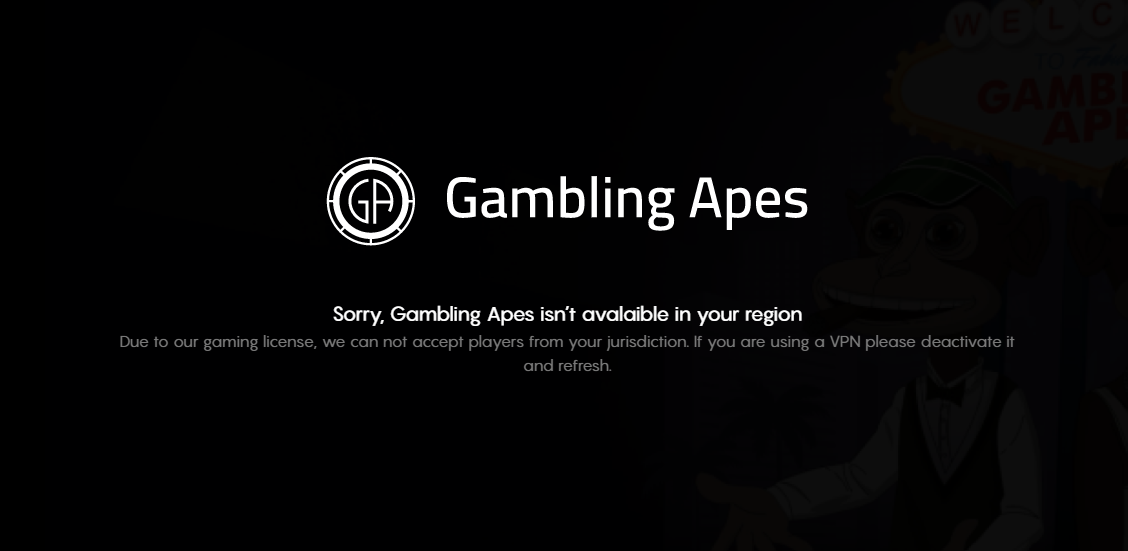Online gambling has been a staple of internet gaming for decades. That, or a thorn in the side of regulators unequipped to hold operators to the standards of ever-changing legal parameters. A $52-billion industry (in 2021) that seemingly exists in the ether, Web3 communities are getting excited about the prospect of high-stakes virtual games.
But times have changed significantly since the poker boom of the early 2000s. While online gambling has been put through the wringer of the legal system, it has emerged on the other side as a robust, if not relatively niche, ecosystem. Yet, the days of internet casinos are changing still, and now, virtual gambling is happening on the blockchain and in the metaverse.
From virtual poker to skill game contests, the line between viability and legality for Web3 gambling seems quite thin. Considering the distrust created in the NFT space via scams and rug pulls, users are understandably apprehensive about engaging with any metaverse betting platforms. But is the skepticism truly warranted? Is there really so much at stake for those wanting to engage in metaverse gambling?
The legality of online gambling
Before delving into the forms of NFT betting in the metaverse, it’s important to understand the legal status of online gambling in the United States. Without going too deep into the vast and odd history of the industry, in 2022, gambling regulation is both quite strict and varies state by state.
For the most part, the regulation of online gambling harkens back to the Federal Wire Act of 1961. Originally, this act went into effect to prohibit gambling that takes place across state lines. In other words, placing a bet in your state of origin is fine, but placing a bet in an adjacent state in which you don’t reside is considered illegal. This act mostly came about as a way to suppress local criminal activities that supported national criminal organizations, but, with the advent of the internet, it’s had palpable effects on online gamblers across the country.
In turn, the Federal Wire Act also affects Web3. Because while in 2011, the Obama administration’s Department of Justice (DOJ) concluded that the Wire Act may only apply to sports betting, years later, in 2018, the Trump administration’s DOJ reversed the previous interpretation, saying that the law extends to all forms of cross-state gaming. This effectively threatened the legality of online lotteries, poker, etc, and left it to the discretion of the individual states to regulate.
But the Wire Act isn’t the only force restricting online gambling, since the Unlawful Internet Gambling Enforcement Act of 2006 (UIGEA) made it illegal to operate an online gambling website from U.S. soil. Yet, since operators of most online gambling sites moved overseas, their U.S-based users retained the ability to continue legally placing bets on said platforms from home, so the act gave leeway to users. While this offered more accessibility to online gamblers, the 2018 interpretation of the Wire Act restricted online gambling as a whole, meaning that even offshore casinos were off-limits to those in states with harsh regulations.
Currently, online gambling is only legal in seven U.S. states — Nevada, Connecticut, Delaware, Michigan, New Jersey, Pennsylvania, and West Virginia. But there’s a bit of a catch: In Connecticut, online poker is illegal, and in Nevada, online casinos are illegal. Beyond that, each state differs in regulation of lotteries and sports betting, with some having introduced general gambling bills that await further review.
Gambling in the conventional sense can be defined as the act of playing games of chance for money. Obviously, the money part is significant, since regulators are only on the lookout for games with stakes — like money, valuables, and assets (which could include crypto and NFTs, by some definitions). However, sometimes games of skill are also placed under the same umbrella as gambling, despite subtle differences.
Skill games are any game, contest, or amusement whose outcome is determined by the judgment, skill, dexterity, or physical ability of the participant, rather than by chance. Think of this distinction as the difference between a slot machine and poker. Slot machines present randomized pairings with varying chances of winning, while a poker win depends on the skill and knowledge of a player (and some chance).
While legal jargon and compartmentalization might seem unnecessary, it’s unavoidable, and part of the inherent framework of Web3 gambling. Truly, when looked at holistically, gambling is not all the same, with some forms differing significantly. But if broken down by part, we can answer the most pressing questions surrounding metaverse betting:
- Who can engage in metaverse gambling? Anyone can engage in metaverse gambling, as long as there is no real monetary gain or loss at stake. This means anyone can play online casino games for fun, but only those in the aforementioned specific states can engage in online and metaverse gambling for money.
- How does metaverse gambling work? Games of skill seem to be the only truly viable way to host metaverse gambling. Chance cannot be a significant factor. While skill games are considered more akin to contests rather than gambling, they often fall into the same category, culturally speaking.
- Where does metaverse gambling happen? Read on to find out.
The state of gambling in the metaverse
One of the most robust use cases for metaverse gambling may not actually be gambling, per se. More of a Web3 gameshow, Internet Game pits users against each other in a battle royale mini-game that nearly anyone can join. Built around the power of blockchain technology, the game allows NFT enthusiasts to compete in several online games for a chance to win prizes worth hundreds of thousands of dollars.
At face value, some might consider the platform itself a gamble. After all, to participate in Internet Game, you must purchase a Game Token NFT, and the proceeds from the sale of Game Tokens are used, in part, to purchase the game prizes. But this doesn’t make the game a raffle or lottery — it’s more of a contest because prize winnings aren’t left up to chance. Instead, they’re up to your ability to succeed in skill games (there’s that term again). However, not all skill games are created equal, as Internet Game’s Co-Creator Jordan Lejuwaan knows well.
“If you have games that are too heavy on the skill side, like if they are 100 percent skill-based, then you will have players that absolutely dominate,” Lejuwaan said in an interview with nft now. “But you can’t have too much luck, because then it’s considered gambling. Internet Game only runs skill games. It’s a contest that doesn’t count as gambling because users are in control of their own destinies.”
For now, it seems that skill games are the only viable way to host metaverse gambling. But perhaps this isn’t gambling at all. Although the term “metaverse casinos” present the connotation of gambling, they often offer up skill games like poker, blackjack, and backgammon, rather than slots, roulette, dice, and other games of chance. So maybe metaverse gambling deserves to be its own term, separate from the traditional gambling definition.
But regardless, skill games labeled with buzzwords like “metaverse gambling” have begun to take off, with videos of users playing poker in the metaverse even going viral. Through platforms like Meta’s Pokerstars VR and Decentraland’s ICE Poker, users are finding a newfound love for online gambling. But there’s a catch: you can’t really make any money from metaverse poker, because poker and virtual casinos are so harshly regulated. Although ICE Poker does seem to somewhat skirt regulation by allowing users to earn game-native crypto tokens, which do actually have some blockchain value.
Yet, ICE Poker is more of a play-to-earn than it is metaverse gambling. While poker itself begs for a “gambling” label, accruing small profits through skill games over time is definite P2E. Of course, some would say that investing in a P2E project is, in and of itself, making a bet on that project to do well long term. But the argument stands that decentralized or Web3-leaning P2E gaming is simply a variation of the real-money gaming business model popularized by esports — with games like Axie Infinity supplanting League of Legends.
Do Web3 and NFT gambling have a future?
Unless you reside in a country that has laxer gambling laws than the U.S., don’t expect to earn beaucoup bucks from metaverse casinos anytime soon. Unless those winnings are akin to Fortnite V-Bucks and can’t be cashed out for real money. Also, don’t expect to use a VPN to join offshore virtual casinos, because, while the prospect of earning untraceable coins is tantalizing, the U.S. requires that all NFT and crypto gains be reported as taxable income.
This is precisely why projects like Gambling Apes have country-specific blocking enabled on their landing pages, in hopes of deterring potentially illegal activity, if only by a degree.

For now, it perusing metaverse casinos for fun seems the wisest path of action. That, or find a good skill game (like Internet Game) that operates within the scope of the law. After all, those aiming to capitalize on metaverse gambling without doing their due diligence are likely to get burned. This is exactly what happened with Slotie NFT, a metaverse casino that was accused of selling NFTs that violated securities laws.
Similar to crypto regulation at large, metaverse gambling feels like a “wait and see” scenario. Currently, it’s still relatively unclear how, if, and to what extent existing regulations apply to metaverse gaming, regardless of the interpretations we can derive from things like the Wire Act and UIGEA, so airing on the side of caution is likely a smart path for developers and users. Surely, if an entertainment-centric metaverse is to become sustainable, as Zuckerberg’s Meta undoubtedly hopes, regulators and Web3 communities should keep an eye on metaverse gambling.
Credit: Source link






















 Bitcoin
Bitcoin  Ethereum
Ethereum  Tether
Tether  Solana
Solana  USDC
USDC  Lido Staked Ether
Lido Staked Ether  XRP
XRP  Dogecoin
Dogecoin  Toncoin
Toncoin  Cardano
Cardano  Shiba Inu
Shiba Inu  Avalanche
Avalanche  TRON
TRON  Wrapped Bitcoin
Wrapped Bitcoin  Bitcoin Cash
Bitcoin Cash  Polkadot
Polkadot  Chainlink
Chainlink  NEAR Protocol
NEAR Protocol  Litecoin
Litecoin  Polygon
Polygon  Internet Computer
Internet Computer  Uniswap
Uniswap  LEO Token
LEO Token  Dai
Dai  First Digital USD
First Digital USD  Ethereum Classic
Ethereum Classic  Hedera
Hedera  Aptos
Aptos  Stacks
Stacks  Mantle
Mantle  Stellar
Stellar  Cronos
Cronos  Cosmos Hub
Cosmos Hub  Filecoin
Filecoin  OKB
OKB  Render
Render  Renzo Restaked ETH
Renzo Restaked ETH  Immutable
Immutable  Pepe
Pepe  XT.com
XT.com  Bittensor
Bittensor  Arbitrum
Arbitrum  dogwifhat
dogwifhat  Maker
Maker  Wrapped eETH
Wrapped eETH  The Graph
The Graph  Optimism
Optimism 
